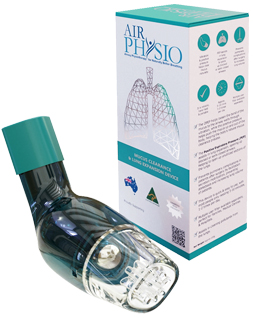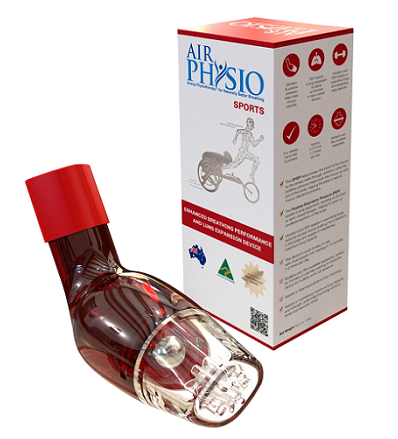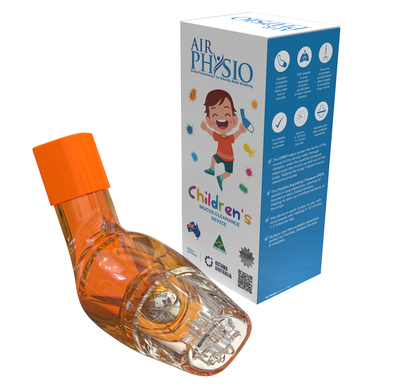Can Asthma Go Away? Symptoms, Causes & Treatments
If you, your child, or a loved one has asthma, you’ve likely asked this question several times before. Asthma is a chronic lung condition that causes the airways in the lungs to become inflamed, which then causes them to narrow and produce mucus. This makes it difficult to breathe and may trigger incessant coughing, shortness of breath, and a peculiar whistling sound (wheezing) when you exhale.
The condition progresses in several stages, which can range from mild to severe. In some individuals, it is nothing more than a minor inconvenience. In others, however, it is a life-threatening reality they have to deal with every single day.
You’ve probably come across individuals who had asthma as children but appear to have outgrown it. How is this possible? Does it work for adults as well? Can asthma go away? Here’s everything you need to know.
Asthma Causes And Triggers
Nobody knows what exactly causes asthma. What we do know is that it is a chronic condition that causes inflammation of the airways and gets worse when you’re exposed to certain lung irritants. These are referred to as “triggers” and cause the airways to swell up, constrict, and fill up with mucus. Triggers vary from person to person, as well as in their severity.
Allergies play a major role in triggering asthma attacks, as do genetics. However, the most important thing to do would be to understand your triggers and take the necessary steps to avoid them at all costs. This will result in fewer and less severe asthma flare-ups.

Some Of The Most Common Asthma Triggers You Need To Wary Of Include:
- Allergies
- Acid Reflux
- Certain Foods And Food Additives
- Certain Medications
- Exercise
- Industrial/Chemical Fumes
- Mold
- Pollen
- Pollution
- Sinusitis
- Smoke
- Smoking
- Weather
Asthma Risk Factors
Aside from the common triggers you’ve seen so far, certain risk factors predispose you to respiratory problems like asthma. For instance, childhood asthma is more prevalent in boys than it is in girls. Some experts assert that it could be because the size of a young boy’s airway is much smaller compared to that of a girl.
Additionally, if you have a family history of asthma, there’s a good chance that you or your children might develop the condition. Roughly three out of every five asthma cases are hereditary. If at least one parent has asthma, the children are three to six times more likely to develop it.
The third risk factor is atopy – the genetic tendency to develop asthma, eczema, allergic conjunctivitis, and allergic rhinitis. Atopy increases sensitivity to common allergens, particularly those in the air or food.
Other common risk factors that increase the likelihood of developing asthma include obesity, maternal smoking during pregnancy, and environmental factors like secondhand cigarette smoke or heavy air pollution.
Symptoms Of Asthima
Asthma symptoms vary from one person to the next, especially when it comes to their frequency and severity. Signs of an asthma flare-up include:
- Incessant Coughing And Wheezing That May Be Aggravated By A Cold Or Flu
- Shortness Of Breath
- Tightness In The Chest Accompanied By Pain
- Trouble Sleeping Brought On By Coughing And Shortness Of Breath
- Wheezing When Breathing Out
As asthma deteriorates, the associated symptoms progressively get worse. Here are a few signs that your asthma could be flaring up.
- Your Symptoms Are Getting More Frequent And Severe
- The Readings On Your Peak Flow Meter (PEF) Indicate Deteriorating Lung Function
- You Need To Use Your Quick-Relief Rescue Inhaler More Frequently
Types Of Asthima
For some individuals, the signs and symptoms of the illness appear to flare up in certain conditions, depending on the type of asthma they have. Here’s an overview of the different kinds that exist.

- Asthma In Children- Symptoms In The Same Child May Vary From One Episode To The Next
- Adult-Onset Asthma- Adults Can Develop Asthma At Any Age, Although It Is More Common In Individuals Under 40
- Aspirin-Induced Asthma– Flare-Ups Occur When You Take Aspirin While You Have A Cough, Runny Nose, Or Sinus Pressure
- Allergic Asthma-Common Allergens Like Pollen And Dust May Trigger An Asthma Flare-Up
- Nonallergic Asthma-This Type Of Asthma Attack Is Triggered By Extreme Hot Or Cold Weather Conditions And May Also Show Up If You’re Stressed
- Eosinophilia Asthma-This Form Usually Affects Adults Aged Between 35 And 50 And Is Characterized By High Eosinophils (A Type Of White Blood Cells)
- Exercise-Induced Bronchoconstriction-This Attack Happens During Physical Exertion When You Inhale Air That Has Less Moisture Than What’s Already In Your Lungs
- Occupational Asthma-This Affects Individuals Whose Work Environment Contains Airborne Lung Irritants Like Chemical Fumes, Smoke, And Dust
- Status Asthmaticus-These Are Persistent Asthma Attacks That Don’t Subside Even With Bronchodilators (Quick-Relief Inhalers)
Treatment For Asthma
Long-term control and flare-up prevention are at the heart of every robust asthma treatment plan. The idea is to stop the attacks even before they begin. This involves understanding your triggers, taking the necessary measures to stop them, and tracking your lung function using a PEF to make sure your medication is working as it should.
Long-term (preventive) medications like corticosteroids, leukotriene modifiers, and theophylline reduce the inflammation in the airways that are responsible for the unpleasant symptoms.
Bronchodilators, on the other hand, open swollen, constricted airways that get in the way of normal breathing. The common respiratory drugs that fall into this category of medication include short-acting beta-agonists, anticholinergic agents, and oral/intravenous corticosteroids.
Can Asthma Go Away?
For many people, asthma is a long-term condition, especially if you developed it as an adult. In children, it sometimes goes away or improves tremendously once they become teenagers. However, there’s always the chance that it may recur at some point in their adult lives, so it’s always better to think of it as being in “remission” for that period.
It is impossible to determine which children will have a considerable reduction in their symptoms or completely outgrow their asthma. Nonetheless, just because the symptoms appear to have gone or minimized doesn’t mean that the underlying mucosal plugging and inflammation is no longer present. The only way to definitively tell that it’s gone for good would be to do a biopsy.
- They’ve Had Multiple Wheezing Episodes Before The Age Of Three
- At Least One Parent Has Asthma
- They Have An Eczema Diagnosis
- The Eosinophil Level In Their Blood Is Elevated
- They Have A Food Allergy
- They Have Wheezing Episodes That Aren’t Triggered By Colds
If the child has risk-factor (1), has either (2) or (3), in addition to any two symptoms from (4), (5), or (6), their chances of having asthma well into adulthood are significantly higher.
Final Thoughts
Can asthma go away? Maybe… It depends… If you already have it or develop it as an adult, there’s a pretty good chance you’re going to have it for the rest of your life. However, a child may outgrow the condition if they’re not predisposed to any of the risk factors listed in the previous section.
Either way, with the right treatment plan, it is possible to live a full and fulfilling life even with the chronic form of the ailment.
Is asthma an autoimmune disease? The answer to this might surprise you. Check out our blog to learn more.
Average Lung AirPhysio
ENJOY BETTER BREATHING - Use this 100% Drug Free Device - AIRPHYSIO

Recent Posts
Sports AirPhysio
IMPROVE YOUR SPORTING PERFORMANCE - Use this 100% Drug Free Device - AIRPHYSIO

AirPhysio Child
BETTER BREATHING FOR YOUR CHILD - Use this 100% Drug Free Device - AIRPHYSIO

Categories
- asthma (2)
- atelectasis (2)
- bronchiectasis (2)
- copd (3)
- cystic-fibrosis (45)
- featured (10)
- uncategorized (2)


